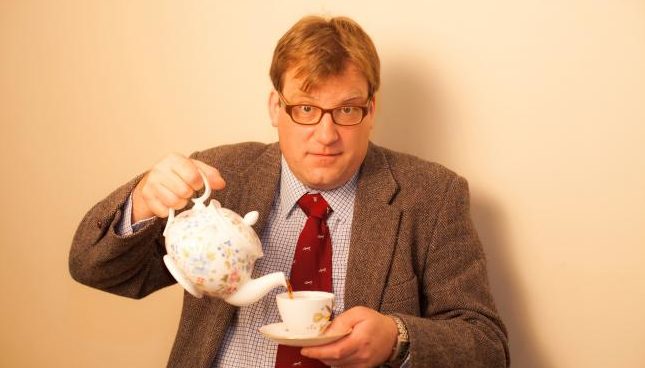The incoming director-general of the BBC believes that the BBC’s comedy output has a Left-wing bias, and has vowed to provide more balance. An article in this morning’s Guardian said that this would lead to a decline in quality, as, according to “a BBC comedy insider”, most Right-wing comics “aren’t very good”, and those that are good — like Geoff Norcott or Simon Evans — are on television anyway.
There is a stereotype that comics are Left-wing; and if you ask comics why that should be they will generally say that comedy requires empathy and understanding for other people and all those other things that Tories — being racist, sexist and wanting to kill unemployed people — don’t understand. It is true that the sort of person who becomes a comic on today’s circuit is from a demographic that skews Left. The philosopher Robert Nozick believed that the average “wordsmith intellectual” was a person who did well at school and can’t understand why this success does not correlate into material success in later life, and thus opposes the capitalist system, and that’s certainly a decent character sketch of many comics.
But it would be more accurate to say that there is a shortage of Right-wing comics who talk about politics. The most important reason for this is that most real Tories find politics boring — according to Lord Hailsham’s Case for Conservatism, it is almost a definition of Toryism to find politics less interesting than family, friends, fun, and all the joys and riches of existence — all of which Right-wing comics would rather make jokes about.
But the other reason for this is audiences. What many commentators don’t understand is that appearing on a BBC panel show is not an entry-level position: to be good enough not to embarrass yourself you have to hone your act on the circuit in front of live audiences. And these tend to be more accepting of Left-wing viewpoints than Right-wing viewpoints.
That’s partly because of the demographic, but in my experience I’ve also found Right-wing audience members to be shyer about their political beliefs. I went to see Geoff Norcott’s show at Edinburgh a couple of years ago, and he asked someone in the front row if he would ever vote Conservative. The punter hesitated and mumbled and finally said that, yes, he could imagine at some point voting Tory. The punter in question — I recognised him from Oxford — was and is one of the senior SpAds in Number Ten. There is peer pressure on comedians, to be sure; but it is much stronger among audiences.
The problem, then, is one of a disconnect between the BBC, which exists to serve the whole country, and the comedy circuit, which is not required to be reflective of the UK and isn’t. The comedy insider quoted in The Guardian is right: there aren’t enough Tory comics to fill the gaps in panel shows; but the solution is surely to produce a more varied selection of programmes, which could play to different comics’ strengths, rather than force comics through the current cursus honorum. Who knows, they might even be funnier.











Join the discussion
Join like minded readers that support our journalism by becoming a paid subscriber
To join the discussion in the comments, become a paid subscriber.
Join like minded readers that support our journalism, read unlimited articles and enjoy other subscriber-only benefits.
Subscribe